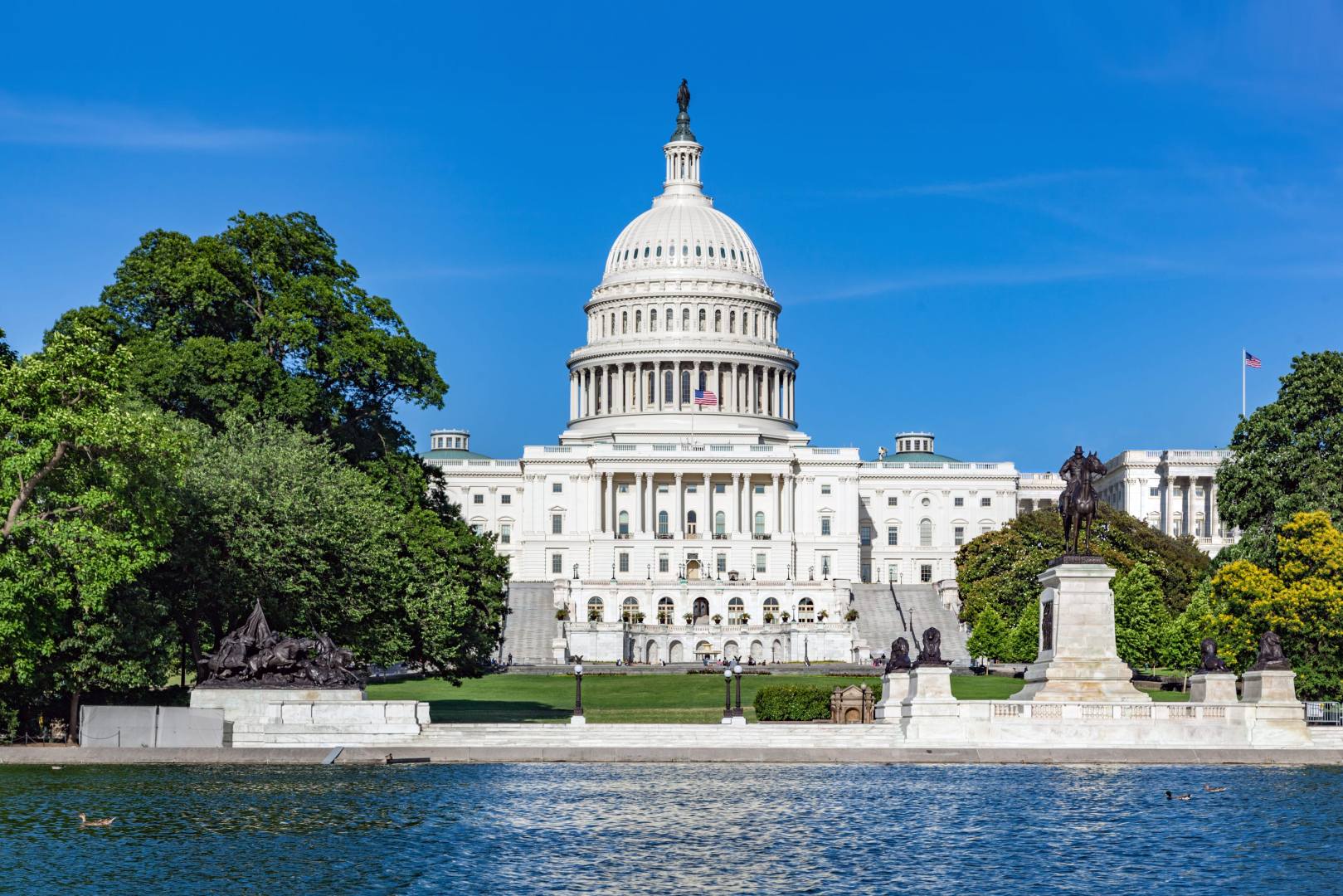
Commentary
-
Our commentary partners will help you reach your own conclusions on complex topics.
One of the most destructive features of our political polarization is that the political parties can devolve into episodes of tit-for-tat retribution. If you investigate my candidate, my president, my party, then we should turn the tables and investigate you back. This cycle of retribution leads to the escalation of political warfare. While we should not expect perfect common harmony between the parties, stopping the cycles of political retribution, would go a long way toward improving civic life.
What are some examples of this cycle of retribution? First, in the late 1970s, as part of a larger ethics reform, Congress passed the Independent Counsel Act. The idea was to create a special counsel who was extremely independent of political control of the current administration, which would allow this counsel to investigate misdeeds of the sitting president without interference. While in theory the goal was to remove political influence from corruption investigations, in practice it created investigations that were nearly uncontrollable, and accountable and unending.
Justice Scalia, in a prescient dissent, noted not only the constitutional problems with the act, but also that it sicced a nearly-uncontrollable beast on a presidential administration. Far from seeing these investigations as apolitical, presidents saw them as weapons of their political opponents. Under the Reagan and first Bush presidencies, Republicans came to see the problems with these independent counsels. And with a switch in party of the presidency, Democrats and the Clinton Administration made the same criticism. Ultimately, the act was allowed to lapse and these open-ended, uncontrollable investigations came to an end.
There are of course, other forms of investigations that are possible under current law, and they are often the subject of political dispute, but the more extreme form of investigation came to an end after both parties had suffered under it. A second example is the use of the House Ethics process against Speakers of the House in Congress. In the early 1990s, Republicans had been in the minority in the House for nearly 40 years, and they saw both corruption and a heavy hand of governing from the majority Democratic Party. They made a series of complaints and ethics charges, one of which led to the resignation of Speaker of the House Jim Wright.
When Republicans finally took the majority, Democrats pursued significant ethics complaints against new Speaker Newt Gingrich. Leaving aside the underlying conduct, this situation was likely to devolve into a new norm that every minority party would try to take out the Speaker of the House with ethics charges. While there was no one action that stopped this cycle of charges, both changes to the ethics process and changes in the political environment kept this from expanding to a regular practice. Third, some good news has emerged from the current House of Representatives. In the last Congress, Speaker Pelosi and the Democratic majority took several actions to remove or to refuse to seat, certain Republicans on committees. At the start of this Congress, Speaker McCarthy and Republicans prevented several Democrats from sitting on committees. Both sides have complained bitterly about their excluded members. And it would not be hard to imagine escalating warfare with the majority party removing more and more of the minority parties members from committees.
Fortunately, there’s good news. Speaker McCarthy and Minority Leader Jeffries, despite their political differences, have established a good working relationship and have regular communication about the operation of the House. They’ve created a bipartisan task force to come up with criteria and due process for any future committee removals. Time will tell if the task force recommendations will slow the political warfare on this issue, but the move is a sign that both leaders are trying to lower the temperature around this practice.
Finally, and most controversially, former President Trump has announced that he’s running for president and he is under investigation in many jurisdictions, including his recent indictment by a New York prosecutor. Many Republicans viewed this particular investigation as political. Some have even called for Republican-elected prosecutors to go after Democratic candidates for office in the same way. It’s hard to imagine a good outcome if former President Trump is subject to indictment after indictment from state and federal prosecutors. Surely this would lead to the escalation of prosecutions of future Democratic candidates for office as well.
There’s no easy answer here. We do have in place some protections. Sitting presidents are shielded from some indictments while in office. And for federal investigations, the Justice Department has policies that aim to limit action on investigations close to an election, although the application of these policies has been disputed. But our problem is now broader as we have state as well as federal investigations, and presidential campaigns are very long affairs.
It will not please everyone, but we will likely need some form of at least partial protection for candidates for office, either enforced by courts, laws, and policies, or agreement between the parties. Otherwise we can only expect to see an ever-accelerating set of investigations of political candidates of both parties.
-
Musk-Ramaswamy DOGE initiative overdue and full of challenges
After winning the U.S. presidential election, Donald Trump announced his plans for a proposed presidential advisory commission he calls the Department of Government Efficiency (DOGE). Headed by Elon Musk and Vivek Ramaswamy, DOGE’s mission would be to trim government budgets, reduce regulations and shrink the federal workforce. Many Republicans view the initiative as overdue, while… -
This is the dawn of a new national Republican coalition
Republicans have won full control of both Congress and the White House. Donald Trump will return to Washington, D.C., as the first Republican president since 2004 to have won the national popular vote, ironically by almost the same margin that Hillary Clinton beat him by in 2016. These GOP victories relied on high pro-Trump voter… -
Why are transitions of power so complicated in the United States?
The American political tradition of a long and complicated transition of power, lasting from November to January, is an enigma in the world today, especially when compared to the many nations where transitions of power take place immediately or in less than 24 hours. Yet even after a new administration takes power in the United… -
The 25th Amendment should remain above politics
The 25th Amendment to the United States Constitution provides for the removal of any American president who is incapacitated or otherwise unable to perform or execute the duties of the nation’s highest office. On and after Jan. 6, 2021, when pro-MAGA insurrectionists pillaged the U.S. Capitol, senior officials called on Vice President Mike Pence to… -
Uncensored political content like Trump-Musk on X is a win for free speech
Former President Donald Trump returned to X, formerly known as Twitter, on Monday, Aug. 12, during a conversation with billionaire Elon Musk. Despite a rocky technical start, the two engaged in a conversation that lasted over two hours, covering topics from a recent assassination attempt to familiar attacks on President Biden and Vice President Harris.…
Latest Stories
-
 Getty Images
Getty Images
Pirate treasure: Kid finds phenom Paul Skenes’ rookie baseball card
-
 Reuters
Reuters
2K migrant caravan begins journey to US amid new Trump border security orders
-
 Getty Images
Getty Images
'I was guilty': Jan. 6 pardon recipient says she'll reject it
-
 Getty Images
Getty Images
Ex-wife of Pete Hegseth denies abuse allegations amid confirmation process
-
 Getty Images
Getty Images
Jury selection begins in A$AP Rocky’s gun trial over 2021 shooting
Popular Opinions
-
In addition to the facts, we believe it’s vital to hear perspectives from all sides of the political spectrum.
Latest Opinions
In addition to the facts, we believe it’s vital to hear perspectives from all sides of the political spectrum. We hope these different voices will help you reach your own conclusions.
The opinions published in this section are solely those of the contributors and do not reflect the views of Straight Arrow News.





















Latest Commentary
We know it is important to hear from a diverse range of observers on the complex topics we face and believe our commentary partners will help you reach your own conclusions.
The commentaries published in this section are solely those of the contributors and do not reflect the views of Straight Arrow News.
Dr. Frank Luntz
Pollster and Political Analyst‘A disturbing pick’: Americans debate Musk, Trump’s cabinet picks
‘Dysfunctional’: Americans share criticisms of Congress
‘Instill optimism’: Americans on how future generations can succeed